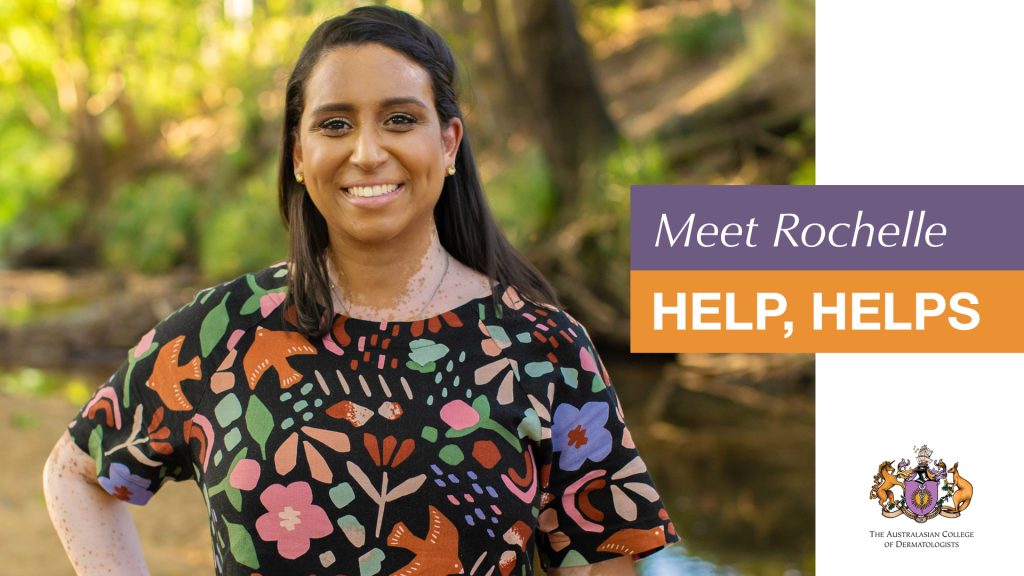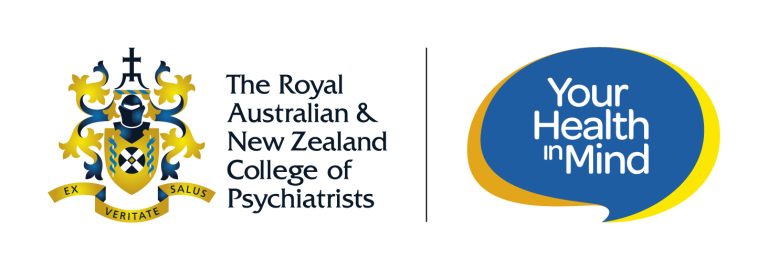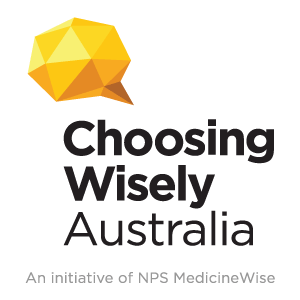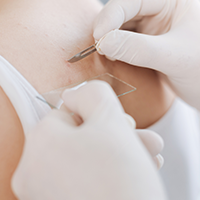
Living with chronic skin, hair and nail conditions can be challenging. Finding the best possible treatment and support can make a huge difference.
Welcome to our Help, helps resource hub where you can find information on accessing care for skin, hair and nail conditions, patient support groups, finding support for your mental health and wellbeing, tips on talking to your doctor and preparing for your medical appointments.
Help, helps videos and stories
Hear about the experiences of people living with chronic skin, hair and nail conditions and from the dermatologists involved in their care, in our Help, helps video series.

Bridget talks about her journey with alopecia and the importance of having an honest and open relationship with your dermatologist.
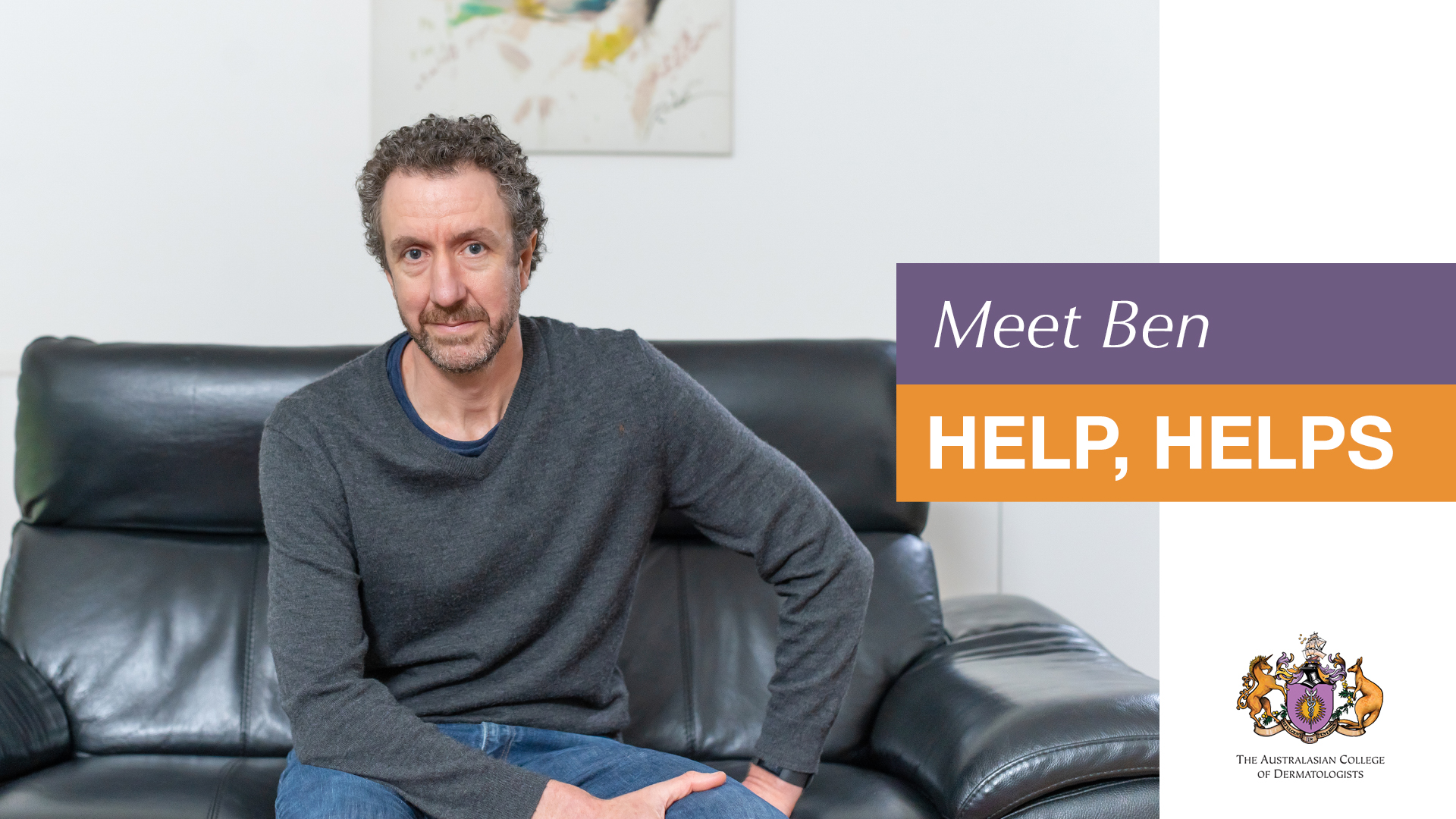
Ben talks about his struggle with eczema and how seeking the professional help of a dermatologist has turned his condition around.
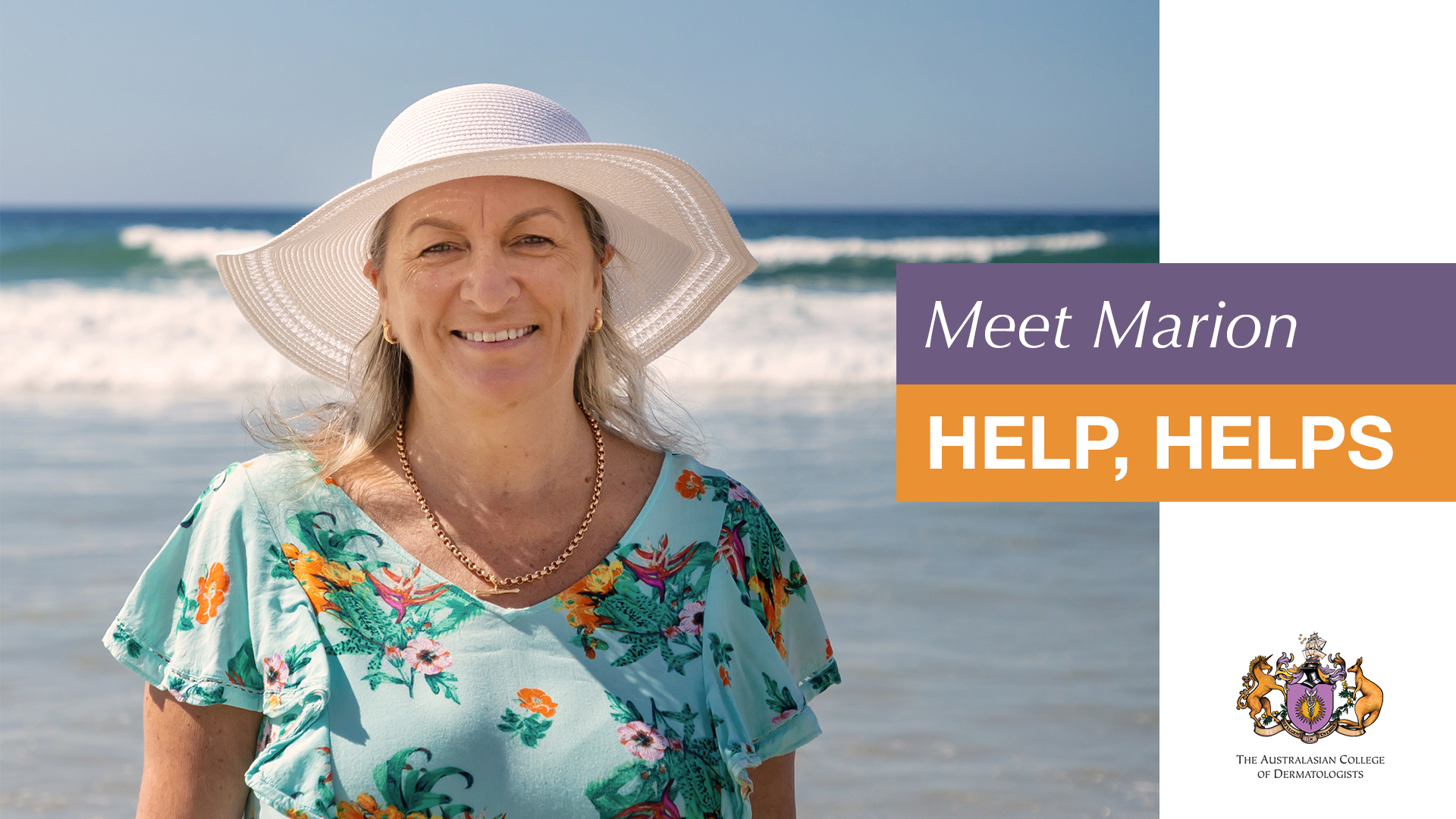
Marion shares her story of living with psoriasis, eczema and rosacea and how she has learnt to confidently manage these with the tools given to her by her dermatologist.

In our feature story, hear from Bridget, Ben, Marion and dermatologists, Dr Kate DeAmbrosis and Dr Russell Hills, as they talk about the importance of good patient/doctor relationships and understanding the impact of skin, hair and nail conditions.

Hear from Bridget, Ben and Marion as they share how help, really does help.
Read Rochelle’s story of living with vitiligo, why skin, hair and nail conditions are more than skin deep and the difference seeking professional help has made.
Translated resources
For podcasts and information in your language visit our Translated resources hub.
Accessing specialist care
Dermatologists are specialist medical doctors. In the same way cardiologists are the specialists in heart health, dermatologists are the specialists in conditions of the skin, hair and nails.
Dermatologists can diagnose, treat and manage more than 3,000 skin conditions. They help people with conditions such as psoriasis, eczema, vitiligo, acne, alopecia, skin infections and skin cancer.
If you think you might need to see a dermatologist, speak to your GP (family doctor). They are able to diagnose and manage many skin conditions. If your skin condition is complex, high risk or requires specialist care, your GP will refer you to a dermatologist.
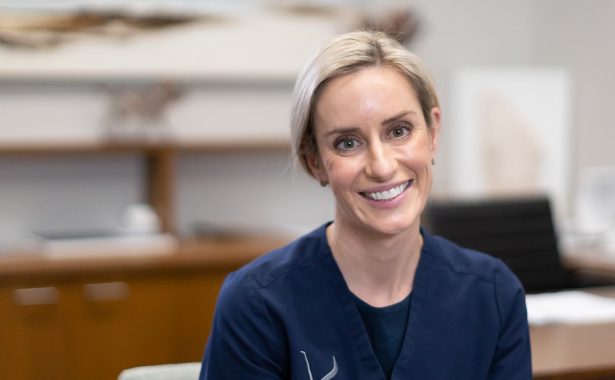
Support groups providing practical and emotional support
Patient support groups provide practical and emotional support to help people, their carers and their families living with chronic skin, hair and nail conditions and skin cancer.
Skin conditions can impact your mental health and wellbeing
Living with a chronic skin, hair or nail condition can have an impact on your self-esteem, mental health and wellbeing.
Alongside effective treatment for your skin condition, talking to someone can make a real difference. So, if you are feeling really down or depressed about your skin, hair or nail condition, talk to your doctor about this. It is important not to delay seeking help.
If you have a family member or friend with a skin, hair or nail condition, be on the lookout for depressive symptoms. These might include less interaction with friends or avoiding social situations. If you are concerned about someone, encourage them to seek medical help.
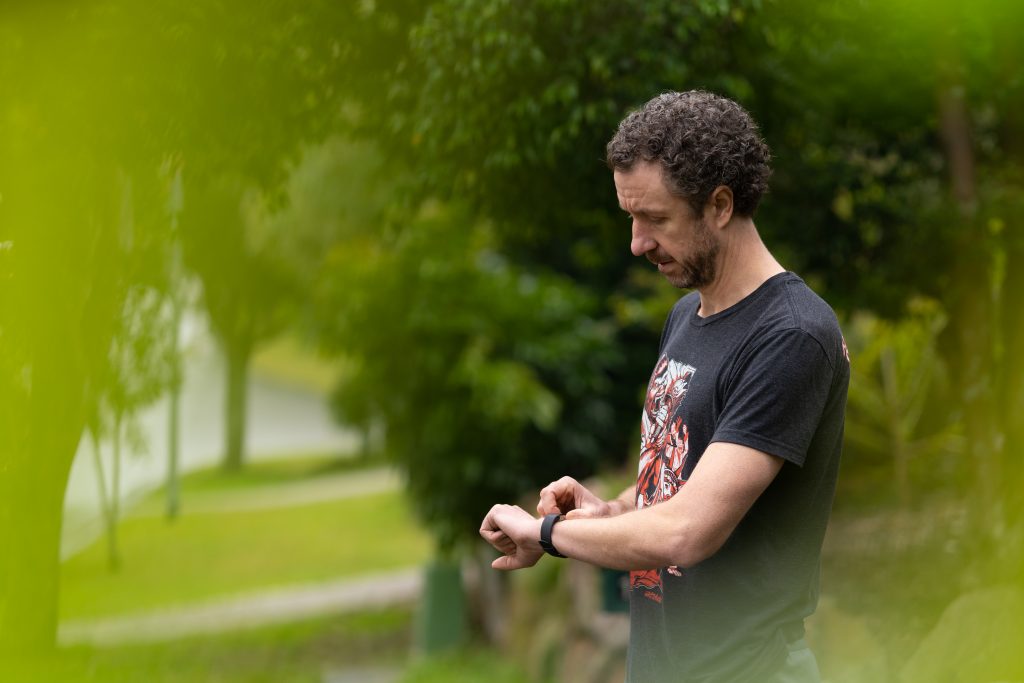
Where to go to for help
Help, helps and it’s only a conversation away.
Accessing mental health professionals
The Royal Australian and New Zealand College of Psychiatrists’ Your Health in Mind website provides expert mental health information for everyone.
The Australian Psychological Society have information about psychologists including their Find a Psychologist tool.
Talking to your doctor
Good communication between you and your healthcare provider is important. You should feel confident and comfortable discussing your skin, hair or nail condition and how it is affecting your health and wellbeing, but it’s not always easy.
Always remember, it is your appointment and your time. Here are some great resources for getting the most out of your conversations with your dermatologist and other healthcare providers.
Your dermatology appointment

Visit our Your dermatology appointment webpage to find out what to expect and how to prepare for either an in-person or telehealth consultation with your dermatologist.
Remember, it’s OK to ask questions. Asking questions will help you get the best possible care.
Choosing Wisely Australia have some great tips for how to get the most out of your healthcare appointments and questions you can ask your dermatologist or GP when you are considering a new test, treatment or procedure.

Healthdirect’s Question Builder helps you prepare for your medical appointment by creating a list of questions to ask your doctor. This preparation will help you get more out of the time with your doctor and remember everything you want to ask.
NPS MedicineWise’s MedicineWise app lets you keep track of medicines and access important health information anytime and anywhere, making it easier to share accurate information with your healthcare providers.

